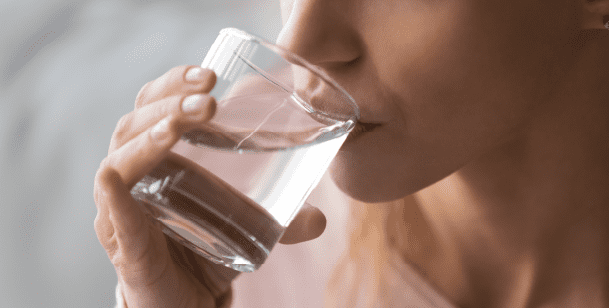If you’ve ever had a kidney stone, it’s likely that you want to do everything in your power to avoid experiencing another one. This uncomfortable medical condition can cause immense pain, and their exact cause remains unclear. “Can stress cause kidney stones?” is a frequently asked question by those interested in preventing stones from forming. In this article, we will explore the nature of kidney stones and shed light on the role stress levels play in their formation.
What Are Kidney Stones?
Kidney stones form when there are excessive amounts of calcium, oxalate, cystine, and other substances crystallize in the ducts running between an individual’s kidneys and bladder. These crystallized stones can cause pain as they create a blockage in the urinary tract or as the stone’s sharp edges scrape the sensitive lining of the ureter on their way out of the body.
Symptoms and Causes of Kidney Stones
The hallmark indication that you may have a kidney stone is pain. This condition can cause a sharp, severe pain to come and go in a person’s side and back, as well as below the ribs; this pain often radiates into the lower abdomen or groin.
Other key symptoms that indicate the presence of a kidney stone are similar to the symptoms caused by urinary tract infections or UTIs. These symptoms include:
- Burning sensations while urinating
- Pink, red, or brown urine
- Cloudy or foul-smelling urine
- A persistent urge to urinate
- Nausea and vomiting
- Fever
The exact cause of kidney stones is still unknown, but physicians have observed consistent similarities between multiple kidney stone sufferers and believe that the following conditions may be risk factors for kidney stone formation.
High Blood Pressure
High blood pressure, or hypertension, causes damage to the blood vessels that run through the kidneys, causing impaired kidney function. This impairment can cause the kidneys to work less efficiently as they filter toxins and waste out of the blood, leading to the build-up of chemicals that make up kidney stones.
Excessive Calcium or Protein Consumption
Excess calcium in your diet can contribute to the formation of kidney stones since calcium is one of the main building blocks of the stones themselves. In addition, eating too much protein can raise the level of uric acid in your system; elevated uric acid levels have been associated with the development of kidney stones.

Dehydration
When we become dehydrated, our kidneys try to conserve as much water as possible. As a result, our urine becomes concentrated. This concentration of urine is thought to contribute to the development of kidney stones.
Existing Health Issues
If you suffer from conditions that impact your overall health, like diabetes, poor diet, obesity, irritable bowel syndrome, or the like, you may be at a higher risk of developing kidney stones.
Genetics
Your genetics can play a large role in your risk of developing kidney stones. If someone in your family has had kidney stones, or if you have had kidney stones before, you will likely develop kidney stones or experience them more than once in your lifetime.
Can Stress Cause Kidney Stones?
Stress and kidney function have a complex relationship. In fact, stress can majorly impact every part of our bodies when it is not managed properly and persists over an extended period. That being said, high levels of stress can indirectly cause kidney stones by causing ailments that support the conditions needed for kidney stone formation.
Stress can change the chemistry of your body and can contribute to a wide variety of health issues that impact the immune, digestive, reproductive, and cardiovascular systems. A prolonged stress response can also cause the development of conditions like anxiety and depression.
In connection to the urinary system, stress can change the chemical makeup of your urine, leading to high levels of the chemicals that cause kidney stones.

Stress Management and Preventing Kidney Stones
Stress is a normal biological function that occurs in everyday life. The human stress response can even help us deal with unpleasant situations when they arise. However, we are not meant to remain stressed. When we are chronically stressed, our overall mental and physical health will begin to deteriorate.
This is why stress management is so important in preventing the formation of kidney stones or other unpleasant health conditions. You can reduce stress in your daily life and support healthy biological function by doing some of the following:
- Exercising regularly.
- Consistently getting enough sleep.
- Eating a healthy, well-balanced diet.
- Moderating your calcium intake and ingesting more citric acid and fiber.
- Practicing meditation and mindfulness.
- Speaking to a mental health professional.
- Staying properly hydrated.

Treatment for Kidney Stones
If kidney stones develop and the pain they cause becomes too severe to tolerate, effective treatments are readily available. If you are treating yourself at home, physicians recommend drinking a lot of water and taking over-the-counter pain relievers or kidney stone medication.
More involved treatment options may be necessary if these treatments aren’t effective. Physicians can use sound waves to break up the stones, allowing them to pass out of the body with greater ease. Additionally, kidney stones can be manually removed with a scope or through a surgical procedure.
Village Emergency Center Can Help
For help with kidney stones, take the road to a Village. Our physicians are experts in emergency medicine and can give you the expert care you deserve when dealing with kidney stones. For more information, or to find a Village near you, please visit our website.
